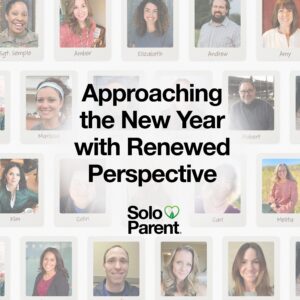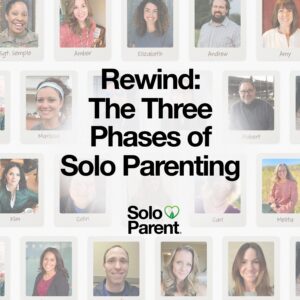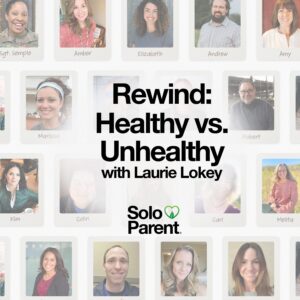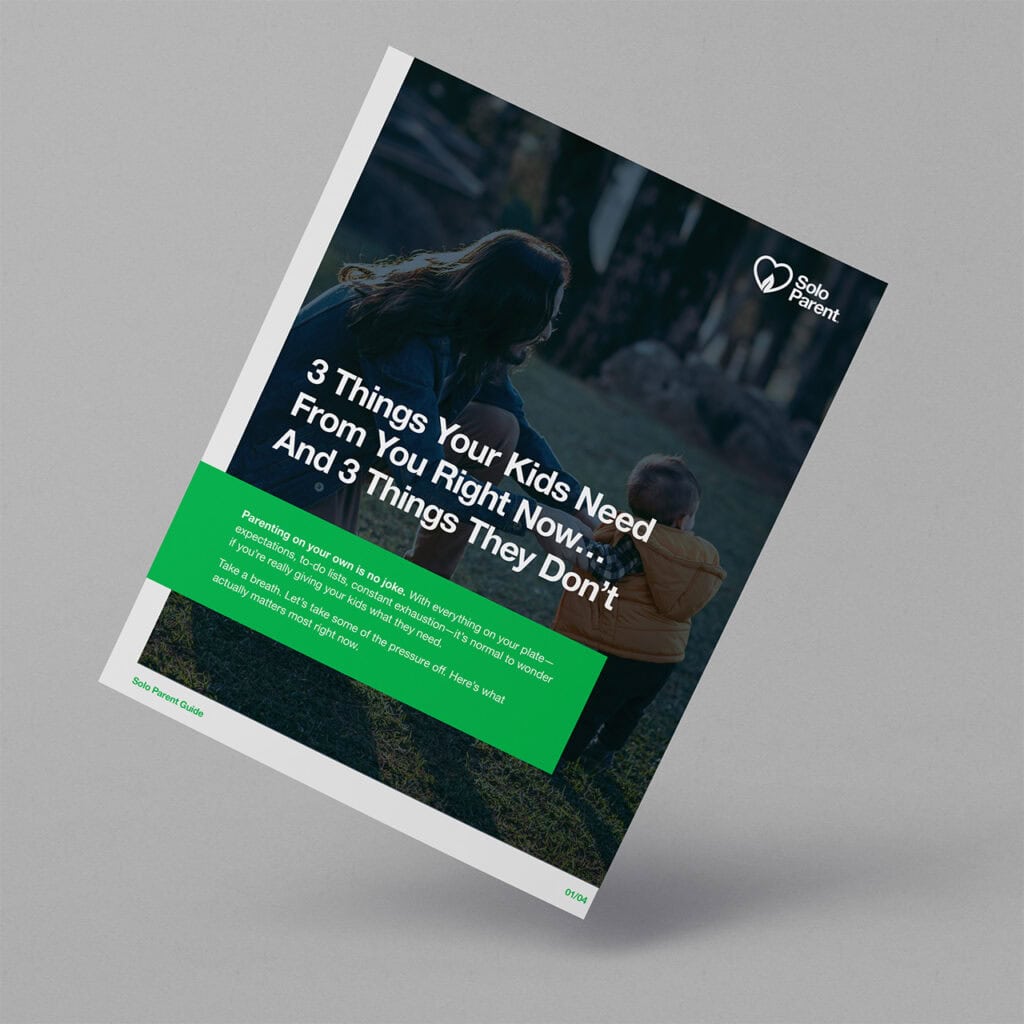There’s a kind of loneliness that settles in when we start believing we have to hold it all in, when we tell ourselves we can’t afford to break, to lose it, or to show just how much something matters. As solo parents, we often push through with gritted teeth and a quiet ache, not because we’re heartless, but because we’ve been told there’s no room for anger.
We were told it was dangerous. That it meant we were out of control. That it would hurt the people we love. But what if we’ve misunderstood anger altogether?
This conversation with Dr. Chip Dodd, counselor, author of The Voice of the Heart, and expert in emotional vulnerability, is an invitation to see anger not as something to manage, but as something to listen to. Anger isn’t our enemy. It’s the part of us that wants to live again.
Key Insights from This Episode
- Anger reveals what matters most to us, it’s not a sign of destruction, but of desire.
- Suppressing anger often leads to shame, anxiety, and isolation.
- When welcomed and explored, anger can lead us back to connection, healing, and purpose.
Many solo parents grew up in homes where anger was dangerous or dismissed. Maybe you had a parent who exploded without warning, or maybe you learned to be “the good one” who never rocked the boat. Either way, chances are, you didn’t learn that anger could be healthy. And now, as you raise your own kids, you might find yourself cycling between shutting your emotions down or erupting when you’re stretched too thin.
Dr. Dodd offers a completely different framework: anger, in its purest form, is the exposure and expression of what we care about most. “It says, I care about this so much,” he explains. It’s a vulnerable emotion that reaches out in hope, not in violence.
Anger reveals what matters most to us, it’s not a sign of destruction, but of desire.
The problem isn’t anger itself, it’s when we suppress it for so long that it becomes rage, and we lose the language to express what we’re really feeling underneath.
If you were ever punished for expressing anger, or told to “let it go” too soon, you might have internalized the belief that your desire or pain didn’t matter. But suppressing anger comes at a cost.
Suppressing anger often leads to shame, anxiety, and isolation.
When we repress it, we disconnect from others and from ourselves. Dr. Dodd explains that without access to healthy anger, we often swing between trying to control everything (anxiety) and shutting down completely (apathy).
One of the most moving moments in this conversation is when Dr. Dodd shares a story about his teenage son, who, after being sidelined from baseball by an injury, erupted in grief and rage in the front seat of his truck. “If God did this, I hate God,” his son said. But rather than shut it down, Dr. Dodd met him in the dark—literally and emotionally—and said, “I don’t have the answers, but I’m not leaving you. I’m going with you through this.”
When welcomed and explored, anger can lead us back to connection, healing, and purpose.
Whether it’s a child slamming a door, a mom overwhelmed by guilt, or a dad fighting off despair, anger is the part of us that still hopes, still cares, still wants to be known.
It’s also the part of us that holds our calling. When we start paying attention to what stirs our righteous anger, what breaks our hearts or lights our fire, we often find the clues to our purpose. “Anger tells us what we’re made to care about,” Dr. Dodd says. It fuels the desire to protect, to create, to speak up, to keep going when it’s hard. That’s why healing our relationship with anger is not just about parenting well, it’s about living fully.
As solo parents, the courage to feel anger is often the gateway to reconnecting with ourselves and with the people we love most. It doesn’t mean we lash out. It means we get curious. We sit with what we’re really feeling. We ask, “What is this anger trying to tell me?” And maybe we begin to say the four words that bring us back to life: Will you help me?
Listener Question
“What are some things you swore you would never do as a parent, but once you became a parent, you ended up doing anyway?”
Dr. Dodd shared how he once stood at the hospital glass window after his son was born and promised, “I’ll never let you hurt.” But it didn’t take long for reality to set in. “You will harm your children,” he says. “But harm isn’t the end of the story, unless you deny it happened. Repair is always possible.”
Elizabeth admitted to believing early on that she’d be able to control how her son behaved in public, only to realize she couldn’t (and shouldn’t). “He’s his own person,” she says. “All I can do is guide him and show up.”
Resources Mentioned In This Episode
- The Voice of the Heart by Dr. Chip Dodd: A foundational resource for understanding and expressing core emotions, including anger, in a healthy and life-giving way.
- Living with Heart: From Birth to Death co-hosted by Dr. Chip Dodd: Explores emotional and spiritual health through the lens of vulnerability and connection.
We want to answer any Solo Parent questions you may have. Submit your listener questions HERE.
Additional Resources:




